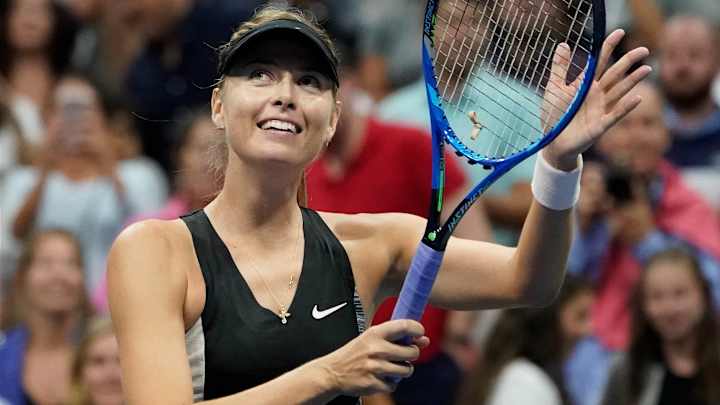The Enduring Legacy of Maria Sharapova

For all her titles, for her Hall of Fame career that spanned more than 15 years, there had always been this central irony to Maria Sharapova.
Hers was an image built on glamour and grace … upscale brands aligning themselves with an athlete who projected an international elegance. Yet her game, her backstory, her entire approach to the sport, it was predicated on the opposite: grit. True grit.
She once endorsed a camera with the slogan, “Make every shot a power shot." It may as well have been the anthem for her tennis. Shot after shot, round after round, she blasted away, punctuating each stroke with that familiar keening grunt.
And her existence was not, in truth, a life of glamour either; rather, she was tennis’s answer to a gym rat. A grinder, a technician, a worker. She spent her days not at international discos and cafés, but on the back practice courts from Stuttgart to Shanghai, drilling and tinkering with her rebellious serve.
Hardly a natural athlete—she once famously described her play on clay as a “cow on ice"—Sharapova would often spend the first 45 minutes of a practice session without a racket in her hand, working solely on movement and footwork. The world saw her on runways and commercial shoots. In tennis circles, we saw her walking through the players’ lounge in a sweat-soaked t-shirt, hair matted to her face.

Maria Sharapova took her work seriously. In short, she was a professional. Tennis was passion. But it was also her job, not her hobby. Vocation, not avocation. And she was rewarded for it. At age 17—in her first Grand Slam final—she took down the mighty Serena Williams at Wimbledon. Two years later, it was the U.S. Open. Two years after that, the Australian Open. Then she completed a career slam in Paris—twice. Her conversion to clay-court expert spoke plenty about the virtues and outcome of her hard work. Retiring on Wednesday at the age of 32, Sharapova finished her career with five Grand Slam titles, 36 WTA titles and time spent at world No. 1.
Along the way there were stumbles. After that Wimbledon breakthrough, she never did solve the riddle of Williams, failing to beat her again after 2004. And there was a positive drug test in 2016 that resulted in a suspension. A tribunal saw no intent to cheat. But it was—and is—an undeniable stain.
She returned in 2017—of course she did—and reminded us of her uncommon grit. In the first round of that U.S. Open, she beat Simona Halep under the lights in New York. Who knew then that it would mark her last signature win?
It was a reminder, though, that for all the glamour shots and all the power shots, this will be the enduring image, the enduring legacy. Sharapova pumping her fist, fixing her gaze, sweating, competing.
